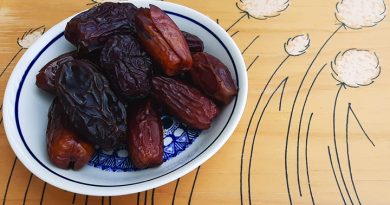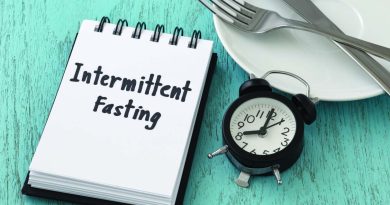Healthy Weightloss: Fuel Up With Protein
By Adele Fawcett, RHN
I look fat…my thighs are ugly…I can’t wear that my big belly shows…I’m so dumb…I can’t do that! Have you ever noticed how mean you can be to yourself? How much of your thoughts are taken up by criticizing yourself, putting yourself down and being your own bully? Most of us don’t talk to our friends the same way we talk to ourselves.
For our friends we get to be cheerleaders, supportive, loving and kind. We take the time to talk them out of their own self-hate and encourage them to recognize their strength, their greatness and their inner beauty! When did you stop extending the same courtesy to yourself? Have you ever treated yourself with kindness and compassion?
Your body is three dimensional and will never look to you like a magazine picture. Most actors and models have the same kind of body shapes and are processed and then presented as ideals to sell you things. These representations do not often show or celebrate the huge variety of body shapes and sizes that exist.
This can create an inability to recognize how YOU are beautiful, how amazing your body is as it moves you, and lets you connect to the world around you. Our bodies are an easy target for our insecurities in the face of this and our image of ourselves becomes distorted, creating mean self-talk and a constant need to ‘lose weight’.
Re-connect with your body. Learn to appreciate all it is capable of doing for you and start being more conscious of your negative self-talk. Experience how your body feels throughout the day and pay attention to cues to let you know what state of health you are in. If you feel sluggish, tired, have low concentration, lack of focus your body might not be getting the nutrients it needs to stay healthy and fit. A healthy body is more efficient at keeping excess fat from accumulating.
Your weight can be a reflection of your overall health. Make sure you provide your body with the nutrients needed to stay healthy and reduce body fat. Our bodies are formed of very complex structures. We are made up of a large variety of building blocks the largest being water. Water makes up just over 75 per cent of our total tissues. Water levels maintain energy levels and even metabolism. A two per cent drop in water levels can cause poor short term memory.
A five per cent drop in water levels causes 25 to 30 per cent loss in energy and the metabolism to slow. And, 15 per cent drop in water levels can cause death. Maintaining adequate hydration is critical to creating health, eliminating wastes, insuring a healthy metabolism and keeping body fat regulated. Drink your ideal amount of water daily by taking your body weight in pounds and dividing it by two.
This is the number of ounces of water to get to keep adequately hydrated. Reduce dehydrating beverages and substances to keep your water levels healthy. Substances that are dehydrating include diuretic medications, as well as caffeine and alcohol, which will require two glasses of water to replace the net water loss to their consumption. More water should be consumed during, pregnancy, exercise, hot weather, shock, trauma, stress, sweating, vomiting and diarrhoea.
Water, caffeine-free herbal teas, and diluted unsweetened juices are all hydrating. After water, our muscles, organs, skin, hair, bones and even functional molecules are made of proteins. Protein provides amino acids which support the building and repair of our tissues, support the function of our immune systems and manufacture and manage our hormones. Many of these hormones are directly responsible for fuelling the metabolism, managing stress, insuring balanced mood, allowing sleep and even control appetite.
The right amount and quality of protein assists the body in burning fat more easily. Most people are not eating ideal amounts of protein to support their body tissues especially when they are more physically active. The more active you are the more protein you require for tissue repair and stress recovery. Most convenient and fast foods are carbohydrates and not very high in protein, so many people don’t get the protein they need by making food choices that don’t provide it.
Breakfast especially is an important time to eat protein. Most breakfast foods, like toast, bagels, cereal, fruit and muffins are predominantly carbohydrates. Eating these instead of protein deprives the body with an essential nutrient early in the day to keep metabolism and energy levels running. Protein is found in fish, chicken, meats, eggs, legumes and in smaller amounts in dairy, nuts and seeds.
Protein powders made from whey (milk), soy, brown rice, hemp and other food sources can be a helpful way to get protein early in the day. When choosing a product make sure it does not have any artificial sweeteners, colours, flavours or unnecessary ingredients.
Protein requirements are based on lean weight, which is the weight of the body without fat, and on the level of physical activity a person engages in. In the absence of tools to measure lean weight and charts providing protein requirements, you can estimate a healthy intake range.
Multiply your weight by 0.6 and then your weight by 0.75. This is the range of grams of protein you should be aiming for (Example 150lbs person would be 90g to 112g of protein daily). Organizing your meals around your protein needs is a good habit to support healthy weight loss and weight maintenance.
Fresh vegetables and fruit, nuts and seeds and whole grains can then be added to provide the other essential nutrients needed by your body. Try to be kind and compassionate with yourself. Catch yourself when you are being mean and focus on your health as your weight loss motivation.
Make changes to your diet to ensure you are getting adequate amounts of water and protein to help you burn fat more efficiently and encourage optimal health!
Sample list of grams of Protein per Serving Size
Chicken 22g/4oz Cottage Cheese 15g/½ cup
Salmon 23g/4oz Cheddar 7g/1oz
Tuna 19g/4oz Mozzarella 5.5g/1oz
Halibut 23g/4oz Yogurts 4g/½ cup
Sole 6g/½ cup Lentils, uncooked 22-25/½ cup
Shrimp 23g/4 oz Beans, uncooked 20-23/½ cup
Pork 20g/4oz Eggs 6g/1 large
Beef 20g/4oz Milk 8g/1 cup
Lamb 15g/4 oz Grains, uncooked 3-5g/¼ cup
Wild Game 23g/4oz Whey 20g-25g/1oz
Turkey 22g/4oz Nuts/seeds 4g-10g/ ¼ cup
Adele Fawcett, BA hon, RHN, is a registered nutritional consulting practitioner and registered orthomolecular health practitioner at the Valley and New Sudbury Nutrition Centre. Questions and comments can be directed to valleynutritionQ@gmail.com




